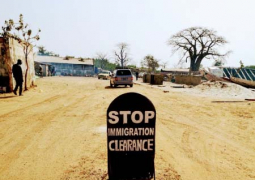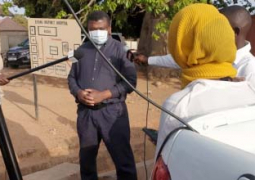
Being the country's only anti-human trafficking agency, NAATIP is mandated under the Trafficking in Persons Act of 2007 to receive and investigate issues of trafficking from the public or coming to its notice or knowledge.
Also, it is mandated to initiate activities and promote strategies to combat trafficking.
On the sidelines, the agency on Friday rolled out a toll-free hotline for the public to report cases of trafficking in persons and related matters.
The Hotline is 1123 and is reachable 24/7.
"This development comes at a time when victims of trafficking require now, more than ever, facilities that provide access to confidential reporting by a mechanism that allows victims to report abuse without fear of intimidation, stigmatization or re-victimization," a press statement signed by the agency's executive director, Isatou Dabo, states.
Trafficking in persons, a form of modern slavery, entails the recruitment, transport, transfer of persons using force, fraud or coercion to exploit them for acts of labour or sex.
In other words, it encompasses the trade in people, especially women and children, for the purpose of forced labour, sexual slavery, or commercial sexual exploitation for the trafficker or others, and it does not necessarily involve the movement of the person from one place to another.
It is the third largest crime industry in the world, behind drug dealing and arms trafficking, and is the fastest-growing activity of trans-national criminal organisations.
As the fastest growing organised crime, it is estimated that it makes approximately 150 billion US dollars in annual profits and 40.3 million individuals trapped in slave-like conditions, as indicated by the UN's International Labour Organisation.
Moreover, in the case of The Gambia in particular, the issue of corruption and official complicity in human trafficking and related crimes remain a key concern.
Gambian border authorities, like in many other African countries do not follow anti-trafficking procedures, and there are allegations police officers even requested bribes to register trafficking complaints.
Hence, the development by the country's anti-human trafficking agency will, no doubt, help in curbing the menace.




